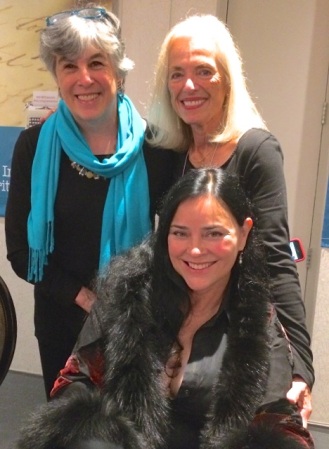The second part will deal with the exciting world of lion taming, and the business of writing. Minus the lion taming. It’s something I wanted to know more about, so I took not one, but three workshops. First up…
Self Publishing – Elena Aitken.
(Elena Aitken is a USA Today Bestselling Author of more than thirty romance and women’s fiction novels. Living a stone’s throw from the Rocky Mountains with her teenager twins and their two cats, Elena escapes into the mountains whenever life allows. She can often be found with her toes in the lake and a glass of wine in her hand, dreaming up her next book and working on her own happily ever after.)
There is a TON to learn about self-pubbing. Like a Fat-Albert ton. Luckily, I had the incredible and super friendly Elena Aitkens who tried to tell us a bit about the process.
She has a ton of information on her site. Please check it out. Elenaaitken.com. But I’ll do a quick overview.
- Covers are important. Digital decisions are made quickly. Great covers get attention.
- Use an editor. You’ll not spot your mistakes. It’s worth the money. (God knows this is true for me).
- Formatting MUST be professional.
- Set up your publishing like a business. Separate accounts. Know ISBN, taxes, royalties.
- Connect with readers. Website vital. A newsletter allows for direct connections. FB, Twitter, etc not as reliable. Programs like mailchimp.com can help with the newsletter.
- Always reply to comments, feedback or shares. We all want to feel special, valued, so make sure your readers feel special and valued.
- Picking the right keywords on your selling site (like Amazon) is vital. Look up your genre, see what’s selling the best, see what words they use.
- Know your goals. Make a plan. Connect your brand to that plan. Stick to the plan.
- There is a lot more on her website, so please check it out. She knows what she’s talking about!
Branding: Steena Holmes : In the age of information overload, how do you stand out?
From the massively successful and brilliant, Steena Holmes, who did two workshops on branding, hereand here. I learned that my brand focus has to be on my readers… not on sales. Not on marketing.
Be aware that you are branding yourself now. Are you doing it right?
Me, I’m not. Not even close. Like a drunk swinging at a bouncer who’s already taken 3 steps back.
Her brand, though, is phenomenal. Her website is perfect. It’s definitely worth checking out
What I learned:
- Create a brand that connects with readers.
- You brand yourself on all social media, even if you aren’t aware of it.
- But one thing she said that really struck me, though was, “You are not your reader.”
- That means, for example, that you might not bug another writer cuz you know how hard it is to find time to write and don’t want to bother them. But a lot of readers LOVE the personal connection they can get with a writer.
- Your followers, your fans, your fellow writers, want to connect to you. You might think they’d hate to read about your struggles or your cats or how you did your research, but you are not your reader. Find out what they want and provide that for them.
- Your brand is your promise. If you’re not writing political stuff, don’t blog about political stuff. If you’re writing romance books, don’t blog about gory horror novels.
- Use newsletters to connect directly with people.
- Newsletters are story-telling. Not just info or news. Get past your own hangups. Don’t think like a writer, think like a reader.
- Don’t just write about writing but about life. Write about life in a way that creates or connects to your brand.
- Brand your newsletter. Like me – Joe Cummings. Writer. Blogger. Stepdad. Historian. Geek.
- Make links easy to access.
- Make the signup for your newsletter as simple as possible. On your website, blog, emails.
- Keep a regular schedule with your newsletter.
- Keep it simple.
- If you’re published, promote new books coming as well as your current book. If not published, promote progress and the experience.
- Never add people to a newsletter without their permission.
- Read other newsletters and see what works. Be genre specific.
Honestly, both these women were amazing resources. I hope they come back next year.
Links below.
Elena Aitken’s self-publishing links. Absolutely great stuff.
Steena Holmes Branding With Intent. She has a 5 step program that’s easy-peasy to follow and her website really is a must-see.





























